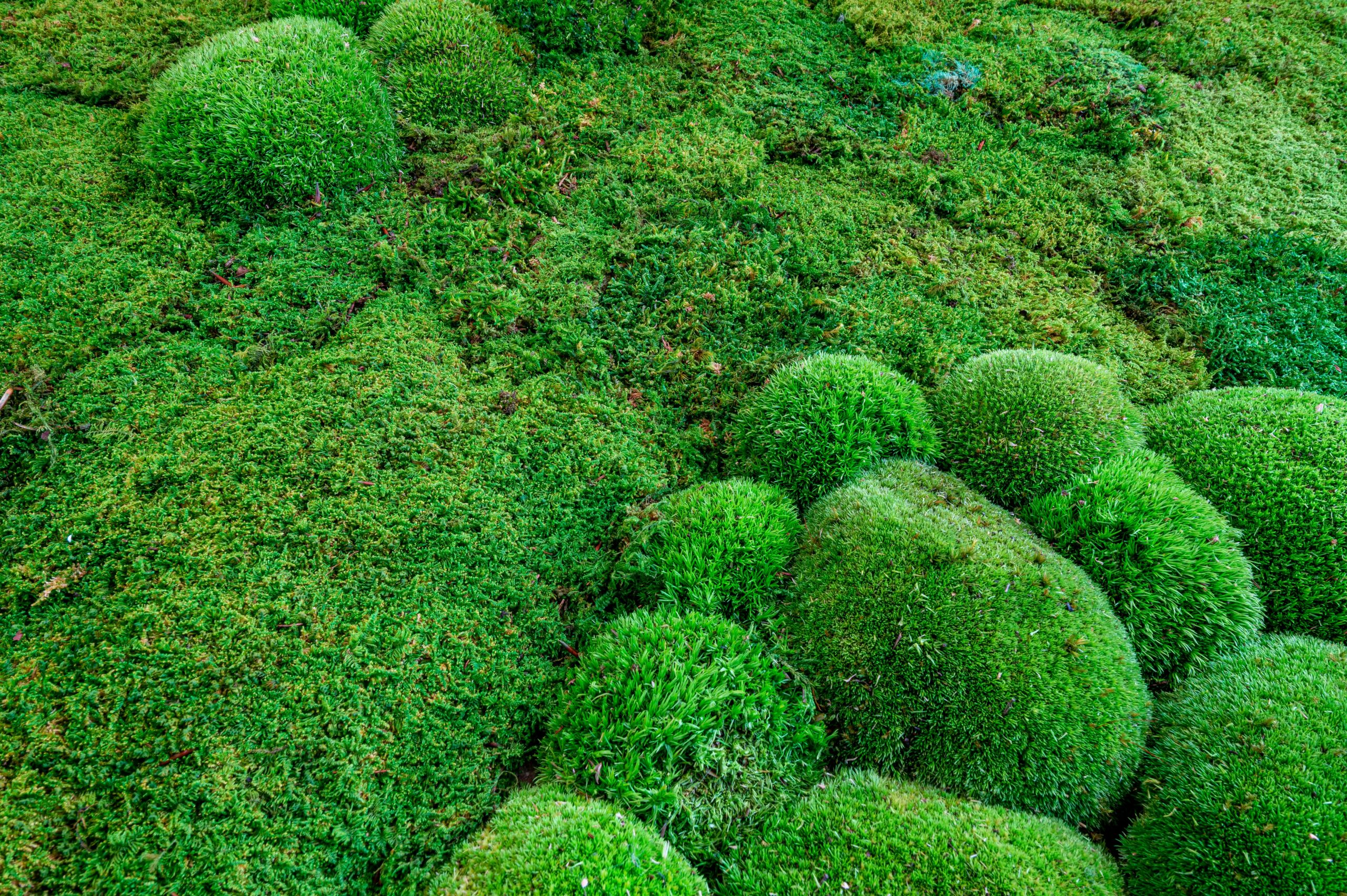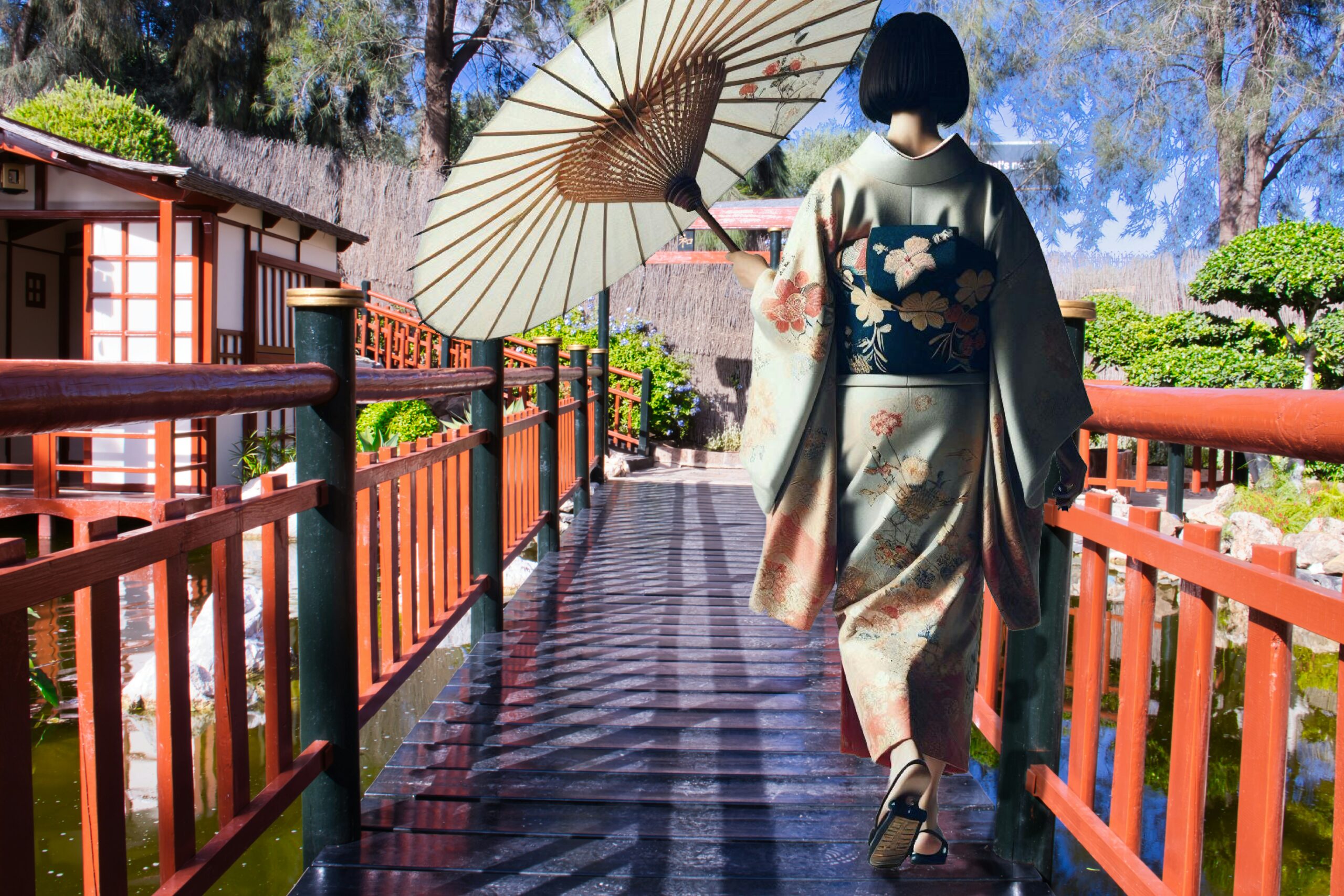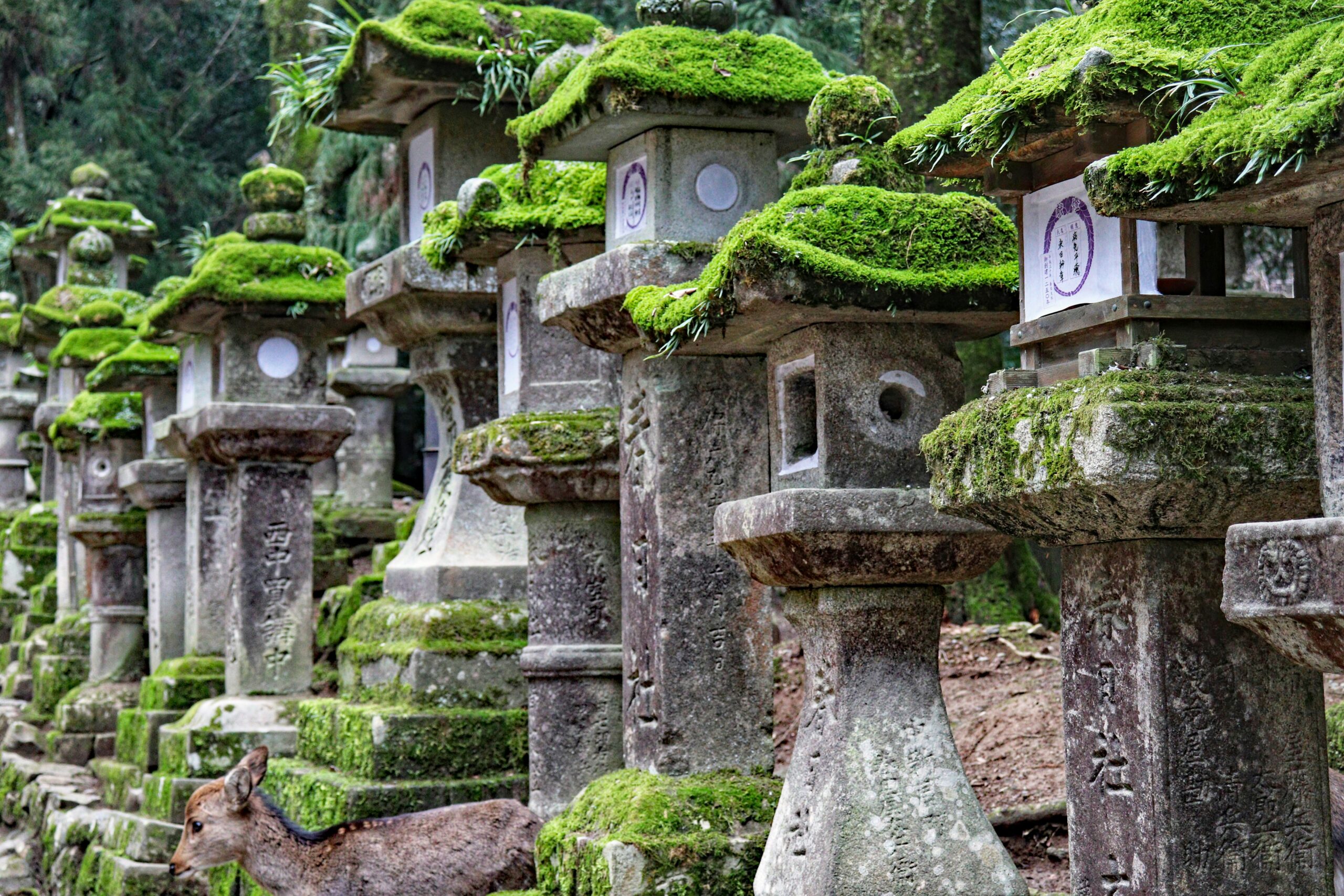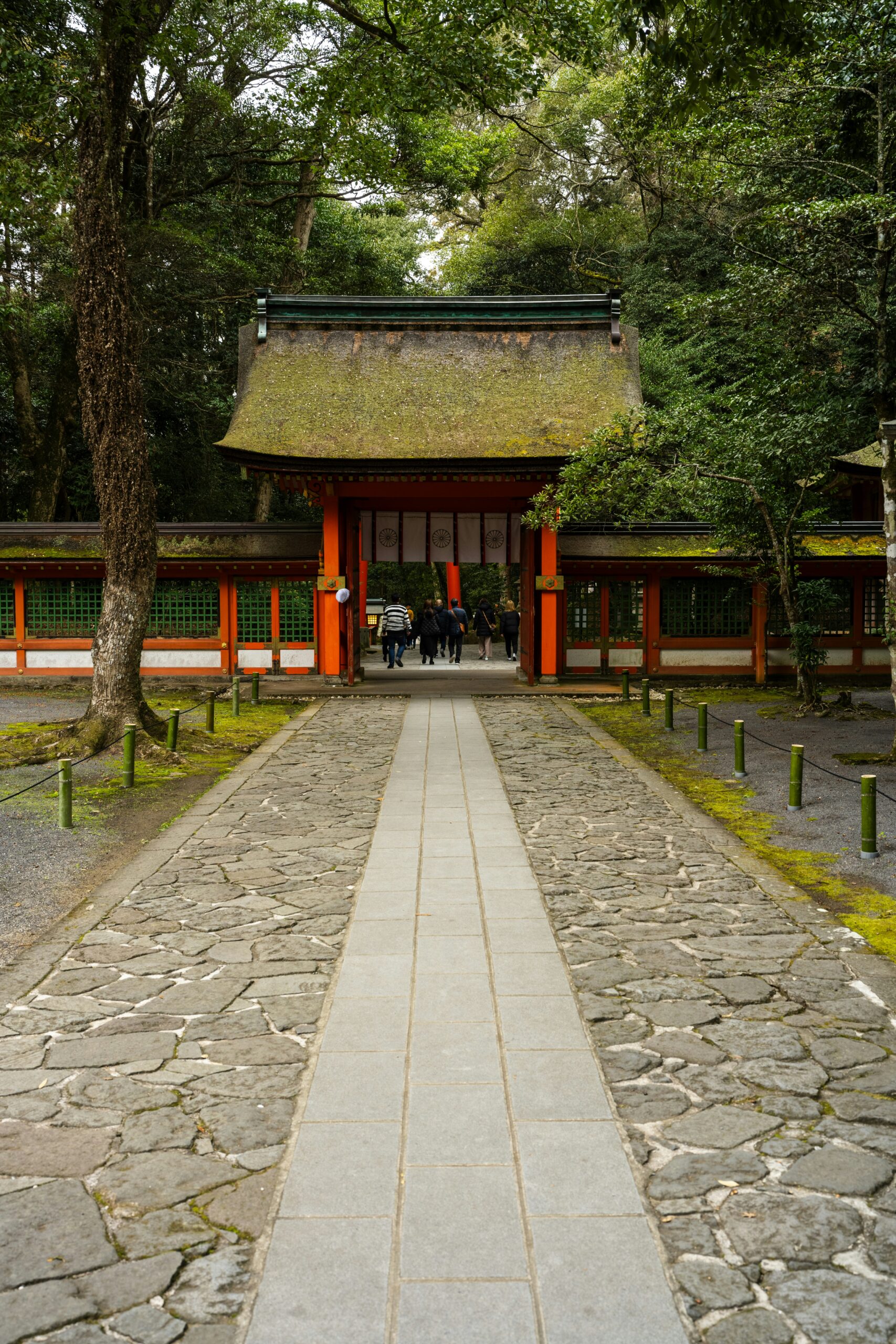
Kyoto is a city where time slows down. Ancient temples, gentle streams, and forests of bamboo hide pockets of peace that feel untouched by the modern world. Among these sanctuaries lies one of Japan’s most magical landscapes: the moss gardens, or kokedera. These living carpets of green transform Kyoto’s temples into scenes straight out of a painting.
And there is no better way to experience them than by walking through these sacred spaces wearing a traditional kimono.
In this guide, you’ll discover a beautifully curated kimono route through Kyoto’s finest moss-garden temples—from iconic landmarks to hidden gems. Whether you’re looking for a peaceful walk, unforgettable photos, or a deeper cultural connection, this itinerary gives you everything you need for the perfect day.
- 🌸 Why Explore Kyoto’s Moss-Garden Temples in Kimono?
- 🍃 What Are Moss Gardens (Kokedera)?
- 🗺️ The Ultimate Kyoto Kimono Route Through Moss-Garden Temples
- 🌿 Kimono-Friendly Cafés and Stops Along the Route
- 📸 Want Professional Photos?Make Your Kimono Walk Truly Unforgettable
- 🧭 Practical Tips for Your Kimono & Moss-Garden Route
- 🍁 Best Seasons for Moss Garden Photography
- 🧡 Why Kyoto’s Moss-Garden Route Is Perfect for Couples
- 🥇 Final Thoughts: The Magic of Moss, Temples & Kimono in Kyoto
🌸 Why Explore Kyoto’s Moss-Garden Temples in Kimono?

Walking through a moss garden in Kyoto is already a serene experience, but wearing a kimono transforms it into something extraordinary. It slows your pace, deepens your awareness of your surroundings, and blends you naturally into the aesthetic harmony of traditional Japanese landscapes.
Here’s why wearing a kimono elevates your journey:
1. You Become Part of the Scenery
Kimono fabrics feature seasonal motifs—autumn leaves, plum blossoms, cranes, and flowing rivers—making you blend beautifully into moss gardens and temple grounds.
2. Perfect for Photography
The contrast between vivid kimono colors and soft green moss creates some of the most stunning photos imaginable. If you want professional photography during the route, consider booking a session through:
3. Cultural Immersion
Temples encourage a slower, more mindful pace. Wearing a kimono aligns with this tradition, helping you feel more connected to Kyoto’s history.
4. Ideal for Couples, Families, and Solo Travelers
Kimono looks amazing on everyone. Many travelers find that shared kimono experiences create lasting memories.
🍃 What Are Moss Gardens (Kokedera)?
Moss gardens are one of Kyoto’s most enchanting natural landscapes. Unlike typical flower gardens, kokedera relies on dozens of moss species to create lush, green carpets that shift in tone depending on humidity, light, and season.
Why Moss Gardens Are Special:
- They thrive in Kyoto’s humid climate and shade-heavy temple forests.
- Moss symbolizes tranquility in Japanese aesthetics.
- The gardens are designed for contemplation rather than decoration.
- Many date back centuries and are maintained by temple monks.
The result? A peaceful, meditative space where sound is muted, air feels cooler, and everything is covered in velvety green.
🗺️ The Ultimate Kyoto Kimono Route Through Moss-Garden Temples
This route is designed to be walkable, photogenic, and culturally rich, starting in western Kyoto—an area famous for bamboo forests, river views, and ancient temples.
Stop 1: Gio-ji Temple — The Fairy-Tale Moss Forest

Why Visit
Often overlooked by tourists, Gio-ji is a miniature paradise. Its grove of towering maple trees rises above a glowing blanket of moss. When sunlight filters through the leaves, the garden feels ethereal—almost unreal.
Best Photo Spots
- The thatched-roof hut framed by moss
- The winding stone path surrounded by trees
- Close-up kimono portraits featuring maple leaves and moss textures
Kimono Pro Tip
Soft pastels, greens, or earthy tones blend perfectly with the serene ambiance.
Stop 2: Adashino Nenbutsu-ji — Moss Between Thousands of Stone Statues

Why Visit
This temple is famous for the 8,000+ stone statues dedicated to unknown souls. Between the statues, moss grows freely, creating a surreal and sacred atmosphere.
What Makes It Unique
- Stone lanterns covered in green moss
- Quiet, spiritual ambience
- Less crowded than nearby attractions
Best Photo Spots
- Rows of stone statues with your kimono in the foreground
- The mossy staircases leading to the inner grounds
Kimono Pro Tip
Deep colors like burgundy, navy, or emerald contrast beautifully with the stone background.
Stop 3: Otagi Nenbutsu-ji — Whimsical, Mossy Laughter
Why Visit
This temple is full of quirky charm. Its hundreds of small statues have joyful, funny facial expressions—and many are covered in soft moss.
Why It’s Great in Kimono
The playful atmosphere allows for creative and fun photos. Couples especially love taking pictures here.
Best Photo Spots
- Rows of moss-covered smiling figures
- Staircases surrounded by greenery
Stop 4: Jojakko-ji Temple — Moss Meets Panorama
Why Visit
Jojakko-ji sits on the slopes of Mount Ogura, offering views of Kyoto. Its moss gardens combine open scenery with forested quiet.
Photo Highlights
- Moss-covered steps leading to the pagoda
- Autumn foliage mixed with moss (one of Kyoto’s best spots)
- Bamboo paths perfect for kimono shots
Kimono Pro Tip
Floral designs pair beautifully with the seasonal colors around this temple.
Stop 5: Kokedera (Saiho-ji) — Kyoto’s Legendary Moss Temple

Why Visit
This is the most famous moss garden in Japan, registered as a UNESCO site. It features a shimmering pond shaped like the character 心 (kokoro, “heart”), surrounded by rich layers of moss.
Important
Kokedera requires advance reservation. If you can get in, it’s a once-in-a-lifetime experience.
Best Photo Spots
- The heart-shaped reflective pond (photogenic all year)
- Bamboo groves leading into the garden
- The moss carpet around the small bridges
Kimono Pro Tip
Elegant patterns (e.g., cranes, waves, clouds) work beautifully in this majestic setting.
🌿 Kimono-Friendly Cafés and Stops Along the Route

This route takes you through the Arashiyama–Saga district, known for charming cafés and tea houses. These stops are perfect to rest your feet without worrying about your kimono.
1. Sagano Yu Café
A renovated bathhouse offering photogenic interiors and kimono-friendly seating.
2. Arabica Arashiyama
Coffee with river views—ideal for candid kimono photos.
3. Kimono Forest (Arashiyama Station)
A stunning installation of illuminated kimono patterns, perfect for evening photography.
📸 Want Professional Photos?Make Your Kimono Walk Truly Unforgettable
Kyoto’s moss gardens might be the most photogenic places in the city—but capturing them beautifully is a challenge.
If you want magazine-quality photos without stress, consider booking a professional photographer in Kyoto:
👉 Book Your Professional Photo Session
Here’s what you get:
- High-quality kimono photography
- Natural poses and location guidance
- Editing and delivery perfect for social media
- Experience with moss gardens, bamboo forests, riversides, and temple routes
Your kimono walk will become a collection of breathtaking memories.
🧭 Practical Tips for Your Kimono & Moss-Garden Route
1. Start Early
Moss looks most vibrant in the morning when humidity is highest.
2. Check the Weather
Light rain enhances moss color and photography—but bring an umbrella that matches your kimono.
3. Choose Kimono Fabrics Wisely
- Spring/summer: lighter cotton or breathable silk
- Autumn/winter: warmer layers and haori jackets
4. Footwear
Zōri sandals are elegant but slippery on mossy steps—walk slowly.
5. Respect Temple Rules
Some areas may restrict photography.
6. Hydrate and Rest
The moss-garden route includes slopes and stairs, so pace yourself.
🍁 Best Seasons for Moss Garden Photography

Spring
Fresh, bright-green moss + soft blossoms.
Summer
The densest, most vivid moss of the whole year.
Autumn
The red leaves create dramatic contrast—perfect for kimono photography.
Winter
White snow dusting the green moss looks magical.
🧡 Why Kyoto’s Moss-Garden Route Is Perfect for Couples
- Soft lighting + greenery = romantic photos
- Quiet, intimate pathways
- Traditional kimono experience you’ll remember forever
- Ideal anniversary, proposal, or honeymoon activity
Add a photography session and it becomes a storybook memory:
🥇 Final Thoughts: The Magic of Moss, Temples & Kimono in Kyoto
Exploring Kyoto’s moss gardens isn’t just sightseeing—it’s a sensory, emotional, and cultural experience.
The soft glow of green, the sound of leaves moving in the wind, and the elegance of a kimono create a journey that feels timeless.
By following this curated route, you can:
- Discover hidden temples
- Enjoy peaceful nature escapes
- Take stunning photographs
- Immerse yourself in authentic Kyoto traditions
Whether you’re traveling solo, with a partner, or with friends, the moss gardens of Kyoto offer something truly unforgettable.
And if you want your memories captured beautifully…
👉 Book Your Photo Session at allphoto-kyoto.com
Your perfect Kyoto moment is waiting. 🌿✨


コメント